|
Have you ever made a bargain with God? I have—I do it all too often! “Listen Lord, I promise to pray every day and spend more time with you if you would just please fix… (fill in tough situation here).” I have come to the realization that I do this without being so explicit. I expect, subconsciously, that because I strive to be a “good” Christian my life’s outcome will be perfect, without suffering or challenges. I wrongly think that if I finally start walking in my identity as a beloved child of God then all my human sufferings will dissipate and my time on earth will contain a storybook ending. It’s a results-oriented mentality: if I put in good work, then I will get a “good” outcome, almost like a math equation. This realization was spurred from walking with friends who have been enduring profound suffering: childless friends who want the gift of a child, friends who have lost babies, friends who are waiting ever so patiently for their vocations, and friends who have been persevering faithfully through physical and mental trials. I have been wondering during prayer why these good people are getting such poor results. “This is not how it should work, Lord, they are good people, and they love you,” I tell Him. The problem with a results-oriented Christianity is that it typically results in disappointment—disappointment in yourself, and ultimately even doubt in God’s infinite goodness and love. Enter Mary, the Mother of our Lord Jesus Christ, who completely destroys this toxic thinking. A few of her titles are: Mother Most Pure, Virgin Most Powerful, Morning Star, Mother Most Chaste, Mother Most Faithful, Mirror of Justice—the titles continue, but the point is that she is the perfection of humanity. She is without sin. She prayed perfectly. She said “yes” to the Lord with total trust and love. In her goodness, Mary teaches us how to be good, how to be more like Her and Her Son. I used to struggle with Mary. I mean, she’s perfect. She’s called the Morning Star, for crying out loud! It’s a tad intimidating to attempt to imitate Her. Then, I pondered Her life’s “result” and Her humanity seemed more relatable. Though perfect, she experienced emotion, and she experienced deep suffering—from losing Her Son in the Temple, to standing at the foot of the Cross as Her Son gave the ultimate sacrifice for you and for me. I cannot imagine the pain Her Immaculate Heart suffered. The Mother of our Lord shows us that the Christian life is not one that lacks suffering—rather that the Christian life is one of faithfulness during times of joy and hardship. In her book Cause of Our Joy, Mother Mary Francis, a contemplative Poor Clare nun and spiritual writer, expounds on another Marian title, Mary Inviolate, meaning “being without violation.” One might look at the result of Mary’s life and see many “violations,” but her peace, trust, and humility in the Father’s Goodness surpassed any fear of suffering. Mother Mary Francis says, “With [Mary’s] help, I will not let every little thing that happens to me disturb me, break in on the peace of my heart, make fissures in my prayer, make cracks in my relationship with Jesus … She could suffer without being violated, so that she could go forward in her life inviolate, unassaulted, nonfissured, with no fortifications destroyed ... Only our reactions assault us. Other things can merely invite us to suffer with the Man of Sorrows and Our Lady of Sorrows” (Francis, 30). Suffering is always an invitation to grow closer to the Lord—to realize that we’re never alone. If we pray, trust, and hope through suffering like Mary did, then we start to move away from a results-oriented Christianity, where we treat our relationship with the Lord like a math equation, and toward true discipleship, where we follow wherever the Lord leads us. When we next encounter suffering—which is inevitable in the Christian Life—may we say “yes” as Mary always did. When we struggle through our suffering, may we go to Her open Heart that has suffered so greatly and there find the understanding, peace and love that only a Mother can tenderly bestow. Question for Reflection: Do I turn to God and His Mother like I would a beloved friend or family member when I suffer? Do I pray only for an alleviation or my suffering? Or do I “talk through” my struggles like I would with a friend or family member? How can I approach the Lord and His Mother like I would these confidants I have on Earth?
1 Comment
This year seems like a year of baby announcements for me! Just as I have prepared for the parade of invitations and happy save-the-dates for graduations and weddings, I’ve been preparing in my own way for the arrivals of friends’, parishioners’, and family’s little ones. With the arrival of spring, so too comes the arrival of brand new family members. At Mass recently, the choir began singing “What a Beautiful Name” during the Eucharistic procession. I couldn’t help but picture the new names and faces that would fill stories from now on. With each birth announcement came the first, middle, and last name along with weight, length, and time of birth. These surely were moments that changed so many lives forever! I could hear the parents and families singing this song for the new baby boy or girl. As I pictured the new names and faces, I prayed using the name that changed humanity–Jesus. Each verse of “What a Beautiful Name” builds upon the last. Jesus’ name is beautiful, wonderful, powerful. The melody and harmony invite you into a transformative reality. Jesus–who is the King, Savior, Son of God, Prince of Peace–knows your name and is present to you in the Eucharist (CCC 432). You didn't want heaven without us So Jesus, You brought heaven down Throughout the Old and New Testaments, we learn about the significance of names and the process of naming. Some names change as different Biblical figures embrace a new mission or vocation: like Abram, Jacob, and Simon. Listening to this song led me to reflect on those figures in Scripture and on Jesus’ Paschal Mystery in light of the birth announcements. His is the only name through which humanity is saved—the name “above every name.” I hope to witness the love of Christ in these babies and in their unique names that are so meaningful. These names are written on the palms of His hand and show God’s unconditional love for His people and the love for His Son, Jesus. Yours is the Kingdom, Yours is the glory Yours is the Name, above all names This spring and Easter Season calls me to slow down and pray with the name of Jesus. I pray in thanksgiving for new life and new names. I pray for the hearts of these little ones and hope that they come to know and witness the beauty, wonder, and power in Jesus’ name. Question for Reflection: Try praying the simple prayer of Jesus’ name. Think of the history and significance of names in your life, the lives of family members, the saints, and scripture. How have each of these names influenced your faith? This Sunday the Church celebrates the Feast of Divine Mercy, a fairly new feast day in the Church. Pope St. John Paul II, who declared Divine Mercy Sunday formally in 2000, stated that, “This [day] is the Easter gift that the Church receives from the risen Christ and offers to humanity.” I never understood that phrase more than when I went on pilgrimage to Poland. In the summer of 2016, I had the privilege of going to Krakow for World Youth Day. The pilgrimage was filled with many graces that I am still unpacking today. 2016 was declared an Extraordinary Jubilee Year of Mercy by Pope Francis, and World Youth Day was held in the country where the Divine Mercy devotion was birthed. Mercy and grace surely abounded that year. Early in the trip, we experienced a day that weighed heavy on our hearts. Our group leader announced that we would make a morning trip to the Auschwitz-Birkenau Concentration Camp Memorial and Museum. As a group we made the decision that, as a sign of respect for the more than one million people who lost their lives at that dark place, we would not speak while we were on the grounds. The silent walk through the memorial shook me to the core. The sadness was hard to comprehend, and the absence of God felt real. As we were nearing the end of the memorial, we came upon a tablet that read the same quote in different languages from all over the world. The quote began like this, “Forever let this place be a cry of despair and a warning to humanity…” That was my experience of the memorial: a cry of despair. After we returned to the bus, we departed for the Sanctuary of the Divine Mercy, where St. Maria Faustina Kowalska lived and is now buried. A basilica has been built as a shrine for Divine Mercy at the Sanctuary and was named “the Capitol of the Divine Mercy devotion” by St. John Paul II. The juxtaposition between Auschwitz-Birkenau and the Divine Mercy Shrine were too extreme for my heart. I was unprepared for the transition from a witness of utter despair to complete hope. Still in agony over our morning visit, I waited in line to get into the chapel where St. Faustina was laid to rest. In the chapel, Adoration of the Blessed Sacrament was also taking place. I was apprehensive to sit in the quiet with Our Lord and at the same time ready for some answers from Him. I walked into the chapel and received my answer from a familiar image hanging inside. In the chapel where St. Faustina is buried was a huge image that seemed to be made exactly for my desolate heart: the image of Divine Mercy; the image which came to St. Faustina in an apparition. It displays Christ in his glory blessing the world with one hand and touching his heart with the other. Two large rays beam out from his heart: one red and one white. There was Jesus with His open hands and open heart, summoning me. Jesus looked as if He was walking towards me, coming to me with His merciful love. The rays of red and white, representing the blood and water that come from His wounds, revealed His heart that desires to reach all of His children and reached me in that moment. Flowing from the heart of Jesus was the hope that was seemingly lost at Auschwitz and in the hearts of millions during WWII. For me, this was the answer to despair. At that moment I realized that although I have never experienced—and could never fathom—the suffering within the walls of that concentration camp, I could see that Christ’s mercy triumphs over all despair. It was triumphant during His perfect sacrifice on the Cross, and three days later at His Resurrection. Christ’s mercy does not hesitate to pierce our hearts, especially during times of suffering or despair in our lives. He only asks us to trust in that perfect mercy. Jesus asked St. Faustina to share with the leaders of the Church his desire that the first Sunday after Easter be declared and celebrated as the Feast of Mercy. It is no coincidence that St. Faustina died less than one year prior to the Nazi invasion of Poland. Perhaps Jesus appeared to her when He did because he anticipated the great need for mercy to flow over the world. Christ knows us, and longs to let His love and mercy pierce our hearts. He only asks us to trust in His sacrifice, His love, and His desire to know us and to be known by us deeply and intimately. When Christ revealed the image of Divine Mercy to Faustina, He asked for the image to be inscribed with three words: “Jezu, ufam Tobie” – “Jesus, I Trust in You.” As we celebrate the Feast of Divine Mercy this Sunday, let us trust in His infinite mercy and in His infinite love. Question for Reflection: How do you see God’s mercy alive in Scripture, history, or everyday life? To learn more about the Jubilee Year of Mercy, please click here. “Rejoice! Hidden within your life is a seed of resurrection, an offer of life ready to be awakened.” -Pope Francis What does Easter look like for you? Does it mean plates filled with sweets, a backyard sprinkled with hidden eggs, a large family gathering, wearing your Sunday best, a long evening at the Easter Vigil? The first Easter Sunday was comprised of an empty tomb, faces that went from fear and despair to bewilderment and excitement, and hands and feet that were pierced but glorified. But for all Christians, Easter Sunday is a day of transformation: darkness to light, despair to hope, death to resurrection. We have journeyed with Christ for 40 days in prayer, fasting, and almsgiving in order to reach this point of transformation. We have been made ready, through God’s grace, to join Him in the celebration of His victory over sin and death. And so Pope Francis reminds us to “Rejoice!,” for the resurrected life of Christ is offered to each and every one of us. Will you allow it to be awakened? The Paschal Mystery is so great that the Church will continue to celebrate this central event for the next 50 days until the Feast of Pentecost, on May 20th. I love the significance of the length of time. Though we have fasted with Jesus in the desert for 40 days, we celebrate as a Church for longer—symbolizing the ultimate victory of our efforts when united with Christ. Though we are called to have periods of intense fasting and prayer in our spiritual life, the end goal is the Resurrection. Let us not fail to celebrate the Easter season and let us celebrate it well! We do this by allowing the life of Christ to live within us long after the Lenten season. Pope Francis said, “The heartbeat of the Risen Lord is granted us as a gift, a present, a new horizon. The beating heart of the Risen Lord is given to us, and we are asked to give it in turn as a transforming force, as the leaven of a new humanity.” Will our hearts beat in time with Christ’s? Will we become the leaven of a new humanity? And if so, what does this even look like? The Gospels give us a few clues. On the night before Christ gave Himself over to be crucified, we read about an intimate encounter between Him and John who has come to be known through tradition as the “Beloved Disciple.” At the Last Supper, after Jesus has washed the disciples’ feet, we read in John 13:23 that “One of his disciples, the one whom Jesus loved, was reclining at Jesus’ side.” During this time of heightened anticipation, it’s an easy detail to miss. John was literally resting on the heart of Christ. He was also present at the crucifixion, the one who did not abandon his Master in this time of fear and confusion. Spending time with Christ in prayer, resting on His heart, allows our hearts to beat in time with His and helps us become “leaven of a new humanity.” The holy women who followed Jesus also understood this. They were present at Christ’s crucifixion and were the first disciples to whom Jesus appeared on the day of His Resurrection. May we look to the example of John and the holy women as we embark on this Easter season. Let us go frequently to meet the Lord and rest with Him by spending time in reflective prayer, reading Scripture, receiving the sacraments, and “washing the feet” of our brothers and sisters. These actions allow our hearts to sync with His. Let us go quickly to the tomb—as the holy women did— only to find it empty, so that we can return with the joyous news of the Resurrection and proclaim it to all who will listen. Pope Francis encourages us, “Let us go, then. Let us allow ourselves to be surprised by this new dawn and by the newness that Christ alone can give. May we allow his tenderness and his love to guide our steps. May we allow the beating of his heart to quicken our faintness of heart.” Questions for Reflection: How has your spiritual life transformed throughout Lent? How can you faithfully celebrate this Easter season? Click here for more resources to guide you through this Easter season. As I was reflecting on the importance of the Lenten journey, it occurred to me that the forty days Jesus spent in the desert were Christ’s training and preparatory period for His life of ministry. By entering into the desert to pray and fast, our Savior was preparing Himself in body and soul to enter into His public mission. We too are called into a time of spiritual preparation to grow in holiness and become followers of Christ sent on mission. Lent helps us to do this by inviting us to focus on prayer, fasting and almsgiving. Because we are personally called to be stewards of Christ’s work on earth, we each have a special vocation that plays an important role in salvation history. Our Lord, in His humanity, demonstrated for us the importance of preparing for our calling. Let’s take a moment to look at the temptations presented to Jesus in the desert and to reflect on how they may relate to our present life and Lenten journey.
The First Temptation: Hunger “The devil said to him, ‘If you are the Son of God, command this stone to become bread.’” (Luke 4:3) Let’s look at hunger from both a physical and spiritual dimension. Are we respecting our physical hunger by providing our body with appropriate nourishment through a well-balanced diet? Our bodies have been fashioned by our Divine Creator. Are we respecting that gift? Learning to discern the various signs that our body sends us is an important step in growing in discipline. We can strengthen, energize, and nourish our physical selves in a way that will enable us to carry out our calling. When we ignore this area of challenge and growth, we fail to establish a sense of physical discernment and our fallen desires become the master of our selves. Throughout Lent, we are invited to abstain from certain things, like meat on Fridays. This helps us to grow in healthy self-denial and invites us to make sacrifices that free us to more intentionally satisfy our spiritual hunger. When looking at spiritual hunger, do we even acknowledge that this desire exists? Are we aware of it? We cannot live without God. Oftentimes, it can be tempting to focus more on satisfying our physical needs than our spiritual needs. Lent is a wonderful time to focus on satisfying our spiritual hunger for God. Can we discern a spiritual versus physical desire? Are we turning to good, Christian practices to help us sustain our spiritual bodies or are we starving them? Do we nourish our soul with Scripture and frequent reception of the sacraments or do we drown this desire in the noise of daily life? The Second Temptation: Power “Then he took him up and showed him all the kingdoms of the world in a single instant. The devil said to him, ‘I shall give to you all this power and their glory; for it has been handed over to me, and I may give it to whomever I wish. All this will be yours, if you worship me.’” (Luke 4: 5-7) In this temptation, the devil offers Jesus thrones and dominions, the powers of the world. Jesus knew that all powers belonged to His Father in heaven, and that all human power is a gift from God. On Ash Wednesday, we often hear the words, “Remember you are dust, and to dust you shall return.” Lent reminds us of our humble origin and our final end. It invites us to grow deeper in our humility and on our reliance on God, who elevates us to His sons and daughters through Baptism and invites us to eternal life with Him. What powers or successes are we tempted by in our lives? Are they disordered? Let us reflect on the things in our lives that we cling to, strive for, or attempt to control. Is there anything God is asking us to hand over that we can give Him this Lent? Have our goals become idols in our life? What false power have we been blinded by that has taken worship away from our Almighty and Triune God? The Third Temptation: Putting God to The Test “Then he led him to Jerusalem, made him stand on the parapet of the temple, and said to him, ‘If you are the Son of God, throw yourself down from here…’” (Luke 4: 9-10) In this temptation, the devil challenges God’s authority and invites Jesus to test God’s power. What are the ways in which we test our Heavenly Father? Do we only turn to God in times of need or instead seek His guidance in all circumstances in life? There is a very important difference between throwing ourselves down in order to see if we’ll be caught versus allowing ourselves to fall, trusting that we’ll be held. Our relationship with our Heavenly Father should not be one of testing, but of trusting. By refusing to give in to the devil’s temptation, Jesus models for us trust, obedience, and faith—what Adam and Eve lacked when they experienced temptation in the Garden of Eden. As we continue through our Lenten journey, may we open ourselves to a deep and honest reflection of these temptations and remember that Christ has already overcome our greatest enemy: the devil. Our Savior, who is fully God and fully man, entered into a time of preparation to discipline and strengthen the physical in order to allow the spiritual to grow and develop. Christ shows us the way against temptation and gives us the strength to overcome it, knowing that the Father of Lies will be waiting with his temptations and tricks to stop us from fulfilling our role in salvation history. During Lent, let us continue to prepare for our call and, strengthened by the powers of heaven and Jesus Christ Himself, not allow the temptations of the Evil One to stand in our way. Questions for Reflection: What are your greatest temptations during Lent? What are some ways you have been able to overcome temptation? Click here for more resources to guide you throughout your Lenten journey. In today’s Gospel, Jesus turns to Peter saying, “Blessed are you, Simon son of Jonah. For flesh and blood has not revealed this to you, but my heavenly Father. And so I say to you, you are Peter, and upon this rock I will build my Church…” On the Sea of Galilee, Peter is marked as the shepherd of the Church. He began as Simon son of Jonah, an unlikely character, a fisherman. Now he will be the leader of the followers of Christ. As the Catechism of the Catholic Church states, “[Jesus] gave him the keys of his Church and instituted him shepherd of the whole flock.” We celebrate this sublime moment today on the Feast of the Chair of St. Peter, praying in a special way for the pope—St. Peter’s successor—and also all clergy, bishops, priests, and deacons who continue to shepherd Christ’s flock. Why celebrate a chair? The physical Chair of Peter is fixed in the Basilica of St. Peter in Rome, but it is a physical symbol that communicates a spiritual reality. Pope Emeritus Benedict gave a concise homily on its significance in 2006, explaining that each bishop sat on a cathedra (his established seat) when entrusted with a specific church. It was not only the place Peter would have sat as bishop, but also where he would have taught, preached, and carried out his priestly tasks. Peter once held a physical space, much like a solitary shepherd who stands with his staff and provides for the sheep he serves. And over time, the chair has been broken, worn, and recreated as a symbol of the apostle’s works. As Peter went from Simon to the rock, petra, the chair became cathedra, the bishop’s seat. Pope Benedict XVI continued in his homily, “the Chair of the Bishop of Rome represents not only his service to the Roman community but also his mission as guide of the entire People of God.” The Chair of St. Peter, therefore, points to the Eternal Good Shepherd: Christ himself. Jesus instituted the papacy knowing of Peter and his future successors’ humanity. Peter was passionate, dramatic, foolish and courageous. He both loved and held a deep respect for Jesus, but would later betray his friend during his Passion. Yet Peter was also the first of the apostles to profess: “You are the Christ, the Son of the living God” (Matthew 16:16). It is for this reason that Jesus replied to him, “you are Peter, and upon this rock I will build my Church.” God works within the brokenness of our humanity and invites us to sanctity, just as he did with Peter. Peter went from a man who betrayed Christ to a martyr who died for him. As the first pope, he became a great leader and model despite his human imperfection. In addition to the humanity of Peter, the Chair also reminds us of the call to holy leadership and is a sign of the grace given by God to those whom he calls, especially in the Sacrament of Holy Orders. The Catechism states, “Just as ‘by the Lord's institution, St. Peter and the rest of the apostles constitute a single apostolic college, so in like fashion the Roman Pontiff, Peter's successor, and the bishops, the successors of the apostles, are related with and united to one another." On this Feast, let us remember to pray for our pope and for all our church leaders! How can celebrating the Feast of the Chair of St. Peter impact our own lives? Think of the physical and spiritual chairs that you sit in today and each day. Whether in an office, at home, in church, or outside, a chair enables us to perform our daily functions. In the same way, we hold offices in our lives. From being a young professional, mother or father, administrator, businesswoman or postman, we hold a place in this world as Christ’s followers. What chair is Christ asking you to fill in his Church? In his homily on this Feast Day in 2016, Pope Francis challenged the Curia and all the Church to make Peter’s words their own. He said, “May our thought and our gaze be fixed on Jesus Christ, beginning and end of every action of the Church…Christ is the rock, on whose foundation Peter was also built…He is the ‘rock’ on which we must build.” As we celebrate the Feast of the Chair of St. Peter, let us ask for St. Peter’s intercession as we strive to profess with faith, “You are the Christ, the Son of the living God.” Reflection Questions: What are the “holy offices” you hold in your own life? How do they reflect the great call of St. Peter as rock of the Church? Take time today to pray a prayer for priests in honor of St. Peter. No one ever told me that marriage prep would be easy, but as I soon discovered, it involves sacrifice, time management, communication, honesty, and humility. It demands both patience and inconvenience, and perhaps an uncomfortable truth or two. There's work to be done, yes, but this cannot compare to the countless joys and the excitement I share with my beloved. Preparation for marriage, however, does not conclude with the certificate of participation. The work continues and never stops! Our efforts may not be recorded by the diocese but are a natural part of this holy vocation. That afternoon, my fiancée and I were thankful for the work and sharing that was accomplished that day, but even more so for the time afterwards we had in order to further share, process, and discuss the details of our sacramental future together.
While this time of year may call to mind Valentine’s Day, the bishops of the United States have designated the observances of National Marriage Week (February 7-14) and World Marriage Day (Sunday, February 11) as “opportunities to focus on building a culture of life and love that begins with supporting and promoting marriage and the family.” The Church is invited to reflect on the role of marriage in the world and its influence on each of us, no matter our state in life. Of course, no two marriages are the same—a truth that reflects the beauty and depth of the sacrament and this mystery of love. Growing up, my parents were my first heroes. Their marriage was inspiring for a number of reasons, but I simply admired its endurance. Marriage, as they knew—and I am continuing to learn—is a lifelong commitment in the sight of God to offer the gift of self to one another in love and for the building of the domestic church, the family. Those called to marriage are entrusted with the awesome responsibility to answer God’s first command to humanity: be fruitful and multiply (Gaudium et spes 48). I was born out of my parent’s married love to bear witness to Love itself. Like my parents, my love is imperfect, yet I continue to offer it as they do: in order to sustain their marriage and continue to live out their vows to love each other in all circumstances of life. Seeing their efforts inspires and shapes my own for my future marriage. Thankfully, I can look not only to my parents’ example, but also to a number of saintly married couples whose lives of holiness are models for the rest of us. The heroic virtues that they exemplified through their marital love are a great source of encouragement and hope to those who face similar circumstances in their lives. My favorite is St. Gianna Molla and her husband, Pietro, who throughout their journey of love composed many beautiful letters to each other. In an increasingly secularized world where marriage is little more than cohabitation, holy couples such as the Mollas are refreshing witnesses to the sanctity of marriage and family life. They model for us the surrendering of all difficulties and hardships to God. Though marriage has its challenges and responsibilities, let us not be intimidated by the reality of this vocation! As in all the other sacraments, God’s grace flows throughout married life and sustains us through this calling. Yes, there are demands and difficulties, but these serve to purify our love in the example of Christ’s total and perfect love from the cross. As Pope Francis advised 10,000 engaged couples four years ago: We are all aware that the perfect family does not exist, nor does the perfect husband, nor the perfect wife. We exist, and we are sinners. Jesus, who knows us well, teaches us a secret: never let a day go by without asking forgiveness, or without restoring peace in your home. If we learn to apologize and forgive each other, the marriage will last. May the Holy Family pray for us as we continue to build the domestic church! For more resources on Marriage and Family, click here. Questions for Reflection: Can you think of examples in your own life of a married couple who lives out their vocation with joy? How has their witness impacted your understanding of marriage? Have you ever wanted to share a valuable treasure with others? Something irreplaceably precious, meaningful, enduring, or even priceless? Would you want to entrust it with a loved one and hope he or she values it as you do? You may be thinking of a prized heirloom, award, or work of art as examples, but my hope is that you also come to think of the Faith as something most worthy and deserving of being cherished and shared like our most beloved possessions.
The life of faith for the Christian starts with his or her baptism. Perhaps you’ve witnessed the beautiful act of the transmission of the Faith during an infant baptism at Mass. In the sacrament of baptism, we are reminded of the wonderful work of God, Who desires to sanctify humanity and make us His sons and daughters. After blessing the baptismal font of water, the priest will turn to the parents and godparents and urge them to renew the vows of their own baptism in preparation for the incredible responsibility and solemn duty that they will undertake. Of course, the depth of the sacrament does not stop there. The baptized will be spiritually guided and supported by parents, guardians, and sponsors throughout his or her spiritual life. As we read in the Catechism of the Catholic Church, “Holy Baptism is the basis of the whole Christian life, the gateway to life in the Spirit, and the door which gives access to the other sacraments. Through Baptism we are freed from sin and reborn as sons of God; we become members of Christ, are incorporated into the Church and made sharers in her mission.” Like all sacraments, there are symbols (sacramentals) which convey a deeper religious meaning. Water represents death and new life. The anointing with the chrism of salvation represents being welcomed as a member of God’s holy people. The white garment is an outward sign of Christian dignity. The lighted candle symbolizes keeping the flame of faith burning in our hearts. As each of us know, it can be difficult to remain steadfast in our faith—that is why it is critical to walk with others in our journey of faith. We live in a world that does not know the light of Christ and is often in need of hope. In a general audience last August, Pope Francis reflected on the significance of baptism as a sacrament of hope. He asked, “What does it mean to be Christians? It means looking to the light, continuing to make the profession of faith in the light, even when the world is enveloped in darkness and shadows.” The baptized are called to be people of hope who encounter and engage with the world in a way that proclaims the Good News of salvation. By surrounding ourselves with a strong community, we will be able to “make our profession of faith in the light” and better live out our baptismal vows. It may have been a while since you reflected on your baptism. Many of us were baptized as infants and so we have no memory of that wonderful moment aside from photos and our baptismal certificate. In our culture, we remember birthdays and anniversaries. What if we celebrated our baptism, the day of our “rebirth,” with similar joy? Our Faith is our most priceless possession. We did not create it, but nevertheless have been entrusted with it to guard, nourish, and share all the days of our life. Our Faith sustains us not only when we want to tap into it, but at every moment in our lives. If we have fallen short at times along our journey and fallen into sin, we have the sacrament of reconciliation to cleanse us of our failings. God never loses faith in us, especially when we may lose faith in Him or ourselves! As Pope Francis said, God “never tires of forgiving, but at times we get tired of asking for forgiveness.” Baptism is the powerful reclamation of each and every one of us by Almighty God as His children! This knowledge changes the way we live and imbues us with hope and joy. Our journey does not end once we have been baptized. The spiritual journey lasts a lifetime. Throughout it, we are never alone. God comes to our aid in times of difficulty or hardship. Our baptism ensures this while also orienting our lives toward Jesus Christ. Let us not fear the darkness or the night, but live in the light and hope of Christ. Pope Francis encourages us: Christians…do not live outside of the world, however; by the grace of Christ received in Baptism they are “oriented” men and women: they do not believe in darkness, but in the dim light of day; they do not succumb to the night, but hope in the dawn; they are not defeated by death, but yearn to rise again; they are not cowered by evil, because they always trust in the infinite possibilities of good. And this is our Christian hope: the light of Jesus, the salvation that Jesus brings to us with his light that saves us from the darkness. May we embrace the beauty of our faith this year and look to our baptism as a point of rebirth that illuminates our path and guides us forward on our journey towards Christ! Questions for Reflection: How has your baptism filled your life with hope? Who are some people that help guide you throughout your spiritual journey? As I write this, the weather is gray and cold. It has been raining for what feels like forever, though more accurately it’s been about a week. I miss the summer. I miss a lot of things, and people, when October rolls around. It seems to be a month made for melancholy. Perhaps it is because two of my grandparents died during separate Octobers in my childhood. This month has always been a time of missing them, remembering the past, and grieving. I was eight the October my paternal grandmother died, and she was the dearest person in the world to me. Grief is a word we use to describe the feeling of missing someone or something after they are lost to us forever. We grieve days that are behind us, relationships that never grew, opportunities that we missed. But most of all, we grieve persons. Death seems to be the end of all that is, the end of all who is. It is unbreakable, unbreachable, unending. As Christians, we do not think in those terms because they have been proven false. Jesus Christ, as well as Mother Church, tells us that death is not the end. It is an act of hope to believe this. Death only appears to be final and absolute and unknowable. Through Christ’s resurrection, God has revealed that death is not our final end. It is often hard for us to trust what happens next because we simply cannot know it with the certitude with which we know this world. The Church speaks of the Four Last Things, with Death being the first or entryway to the other three: Judgment, Heaven, and Hell. But that is another topic. What about those of us who remain on earth while a loved one has gone ahead? What do we do? How do we live with loss? C.S. Lewis told a friend who had recently lost his beloved wife, “Sad you must be at present. You can’t develop a false sense of a duty to cling to sadness if– and when, for nature will not preserve any psychological state forever– sadness begins to vanish” (A Severe Mercy, Sheldon Vanauken). Of course we feel sad as a result of someone’s death. A loved one who brought joy and lightness into our hearts has gone, and our sadness is a natural response. There is no Christian commandment forbidding sadness. It is an emotion, which is neither good nor evil. Emotions just are. They come and go, washing over us. If we choose to take them too deeply within ourselves, however, emotions can become dangerous. We can drown in grief, for example, if we make it our cosmology. And the Christian is commanded to have the same mind as Jesus Christ. He sees the world with the eyes of resurrected love. While we may not always be able to choose our emotions, we can choose our attitude and our response to them. Joy, even in the midst of sadness, “comes of being loved” wrote Pope Benedict XVI in Deus Caritas Est. And love has conquered death in a singular act. Jesus, the Christ, the Second Person of the Trinitarian Godhead, the Son of the Father, died on a cross to redeem us from an unredeemable bondage because he loved us and desired us to be with him. It is to that reality that we must orient ourselves. Grief can too easily turn us inward. Like a black hole, it can devour everything surrounding it so that it is the only thing left. Love perpetually calls us out of ourselves, and asks us to give ourselves as a gift, even and especially in the hard times. I do not doubt that God’s heart broke when humanity sinned the first time, and breaks again at every subsequent sin. But God did not become consumed by grief at our fall. God is love, and love gives of itself to the beloved unceasingly. Therefore, God acted in order to redeem mankind. I want to tell you more about the process of grief, of going through the stages of denial, anger, bargaining, depression and, finally, of reaching acceptance, but I don’t know your process. I don’t know your specific loss, which we all must face at various times of our lives. That’s okay. We can hold a space for each other as we go through the process of grieving. We can let each other remember and smile and laugh and cry and long for the missing one, repeating this process as necessary. As a recent homily reminded me, our God does not tolerate idols in our lives. Our grief cannot consume our love, or else it makes a golden calf of our beloved. May our love of God, united with the love our dearly departed, orient us to the loving heart of the Father. May we know that this present sadness is not the end. Question for Reflection: Have you grieved the loss of something in your own life? How has your faith impacted your experience of grief?
“I am the resurrection and the life, says the Lord; whoever believes in me, even if he dies, will never die.”
Today’s Gospel challenged my understanding of what it means to be compassionate. When Jesus learned that a loved one was ill, He responded in a peculiar manner. He didn’t rush to the sick one’s side or hurry to comfort His beloved’s family. Rather, He waited two days. Why did He wait two days? I sure wouldn’t have done that. If He knew all along that He would raise Lazarus, why would He prolong the wounded agony of Mary and Martha? How could Jesus desert those He loved in their moment of need? It seems almost like a test, a cruel and unnecessary test. Yet I suspect Jesus had a different intention. By waiting two extra days He was not punishing or testing Mary and Martha but inviting them to examine their own brokenness. The idea of resting in brokenness, rather than avoiding it, has been a particularly challenging concept for me. I first encountered it in Bryan Stevenson’s book Just Mercy, in which Stevenson says “We can embrace our humanness, which means embracing our broken natures and the compassion that remains our best hope for healing. Or we can deny our brokenness, forswear compassion, and, as a result, deny our own humanity.” It seems that Jesus chose the former. When He finally arrived in Bethany and witnessed the woundedness of those He loved, He “became perturbed and deeply troubled.” Then, “Jesus wept.” Knowing that Jesus wept helps me reclaim my own brokenness and affirms that truly embodying compassion requires entering into the chaos of woundedness, both my own and that of the “other” person. Prayer: God of grace, help me rest in my woundedness. When I feel most alone and deserted, remind me of Jesus’ constant refrain “Do not be afraid.” Help me remember that Jesus Himself, the almighty Son of God, wept for the pain of His community. Let me never forget that one of Jesus’ greatest miracles of raising Lazarus from the dead was precipitated by His solidarity in suffering with those He loved dearly. Amen. Focus on: Social Justice How have you been wounded by the, as Dr. Martin Luther King Jr. puts it, “sickness of racism, excessive materialism, and militarism?” How can you – and your surrounding communities – enter into this brokenness and encounter healing compassion? Service Inspiration: My mother, Sue, understands part of my volunteer experience, but struggles with other components. However, I recently babysat for a colleague’s children, a two-and-a-half year old and a six-month old. When I left, I was exhausted. I realized later that I watched two boys the same age difference as my brother and I, but only for a few hours. My mom did it for years, and then became my teacher and homeschooled us. She served as an enormous role model, never asking for thanks or recognition, silently taking on her children’s struggles. She is an inspiration and reminder of Jesus here on Earth. *This Lenten reflection was originally published on the Catholic Volunteer Network Blog and was posted with permission. Greg Hamilton attended Saint Michael’s College in the grace-filled Green Mountain State of Vermont and is currently serving as a Jesuit Volunteer in Washington D.C. at the Campaign for the Fair Sentencing of Youth. Most days, Greg finds a way to involve his favorite poet, Mary Oliver, in his routine. We are often our own harshest critics. This is the case in my own life, and sometimes I look up in exasperation at God and tell Him I’m tired…of myself. In our culture of busy-ness and perfectionism, high achievement and the constant thirst for more, it’s tempting to balk at our deficiencies, cringe at our weakness, run from our blemishes. How could I have said that? Why did I fail at that again? How have I not learned? These thoughts run through our defeated minds if we forget in this Jubilee of Mercy to be merciful to ourselves. So often, we turn to shame, annoyance and frustration when we fall, sin or come face-to-face with our humanity. I imagine this is how the woman at the well felt as she went to get water at the hottest time of day. Divorced and remarried multiple times, she was seen as unclean by her Samaritan kinsmen. She avoided the other villagers at all costs in order to protect herself from their condemning gaze. There was one gaze, however, that she was powerless against: His. It was a gaze far more surprising than all others. A gaze not of condemnation, but piercing in its persistence and compassion—the gaze of love from God Himself. What must it have felt like to look up in the noon day heat and meet His gaze? What must it have felt like to be seen, known, and loved by the Son of Man? This is Christ’s eternal gaze upon all of us. If you’ve already experience it, you can relate to the Samaritan woman. If not, I invite you to look up from your well and meet Him there. How He waits for us—the Christ! How He goes out to our man-made wells of sin and shame, of selfishness and pride, of indifference and bitterness to meet His children, to remind them that they are loved! He comes to you, to me. The Lover pursues His beloved. The Shepherd pursues His sheep. The Father pursues the prodigal son. God desires us. Encountering this love and mercy leaves no room for indifference or fear. We long to reciprocate this love, as the woman at the well did. She left her jar, the very reason she came to the well, in order to proclaim the Christ to her entire town—the town she had avoided at all costs (cf Jn 4:28-29). This is radical. This is the conversion that results from the beautiful and delicate balance of love and justice, mercy, and truth. We are loved even when we have deemed ourselves unlovable. We are desired even when we remain indifferent. We are sought when we hide. And today we are being called and sent forth to bring His gaze to the nations. Why? Because we were created for greatness, though we are pilgrims living in a fallen world. We were created for life with God Himself; to live blameless, spotless, white as snow. Yet we live in a world in which we are often warring against God, ourselves, one another, and nature. In this Jubilee of Mercy, we are reminded that our scars or weaknesses should not scandalize us to the point of paralyzation or despair. We can no longer be imprisoned by our sin because we have a Savior—one who calls us to transfiguration and gives us the hope of the Resurrection, which we celebrate in 10 days. The piercing love of God elevates us to be salt of the earth, light to the nations. If we live in the certainty of being loved, we cannot refuse to be gentle and merciful to ourselves. Only in receiving His merciful love each day will we be able to love ourselves purely in the way that enables us to purely love our fallen brothers and sisters. Rather than cower at our weakness, going to the well at noon, let us embrace it—giving ourselves fully and completely to the One who can transform our weakness for His glory! May we cling to Him, not to ourselves, surrendering our folly to His wisdom, our sin to His perfection, our indifference to His love, our brokenness to His wholeness. Leave your jar at the well and go forth. For more resources to guide you throughout this Jubilee of Mercy, click here.
A few years ago, I was backpacking through the desert of northeastern New Mexico. On one particular day, we were going to climb the tallest mountain of our trek, Baldy Mountain, at an elevation of 12,441 feet. As we got higher, the climb became more difficult with thinning air and more challenging terrain. As we neared the summit, I ended up in front of the crew. Just as we reached the summit, our crew leader, Jordan, literally gave me the final push to the top. At that moment, we were on top of the world and gleaming with joy! While on the mountaintop, we could see for miles. As we reveled, I paused and said a quick prayer of thanksgiving. One couldn't help but be amazed at God's great creation. As we rested, having a quick snack and some water, we saw some storm clouds starting to roll in and were forced to descend quicker than anticipated. Eventually, we would finish our 110 mile trek—with Baldy Mountain being one of the greatest highlights.
Whenever I hear the story of the Transfiguration, my mind immediately goes to this time in the mountains. Because of this experience, I feel as though I have walked with Peter, John, and James. At the moment I reached summit, I caught a glimpse of the glory of God. I saw a small part of the transfiguring power of Jesus. I went from a hiker to a pilgrim in a matter of seconds. My trek now had a greater significance. It was no longer just a physical challenge, but one that would cause me to go on a religious quest in God's great creation. This is what I see in last Sunday's Gospel, which is a reminder of the splendor of Jesus. Usually by this point in Lent, I am more concerned about avoiding the things I have given up and less on Jesus. The Transfiguration is a reminder of why we enter the Lenten season: to see the face of Jesus. He helps us transfigure ourselves into being more loving, more merciful, and more perfect humans. If we look at the beginning of Chapter 9 of Luke, Jesus gives his mission to the Apostles. He tells them to go out and proclaim the Good News. It is after the Transfiguration that he reveals more of his glory. We, too, have the same experience. These experiences come in a number of different ways. They are often brief personal moments that can happen anywhere. Personally, I often find them in interactions with individuals. It can be serving the poor, being with a friend during a difficult time, or smiling at a stranger in the grocery store. From the moment of our baptism, we are sent out into the world as apostles and then along the way we consistently experience his glory. This encounter can happen anywhere and at anytime. I also appreciate Peter's role in this Gospel. Rather than being amazed at the splendor of Christ and the conversation between him, Elijah, and Moses, Peter suggests they pitch tents for the three. Doing so would completely defeat the purpose of the meeting. His transfiguration is an affirmation of his identity as the Messiah and is meant to show how Jesus is the fulfillment of the Old Testament. I often find that I say something at the wrong place or time. That is exactly what Peter does here. He means well, but doesn't see what is in front of him: the glory that Jesus has revealed. In his humanity, Peter often does this, yet Jesus still loves him. Especially during the Year of Mercy, we need to be reminded that we, too, can be like Peter and that is okay. We often don't see the splendor in front of our eyes. But we know that we are loved by God, who is the Infinite Love. When we invite God to enter our hearts, we can see the spender of God. Like the patron of the Catholic Apostolate Center, St. Vincent Pallotti, said "Seek God and you find God. Seek God in all things and you will find God in all things. Seek God in always and you will always find God." As we go on this week, we should be looking in our own lives to see the transfiguring power of Christ. It may not be a major event, like last Sunday's Gospel, but in the small things. If we keep our hearts open this Lent we will find God anywhere. For more resources to accompany you on your Lenten journey, click here. Of all the observations on the nature of life I have come across from the popular comic strip Peanuts by Charles Schulz, there is one which I have been touched by the most. In a recurring plot, the main character, a fellow named Charlie Brown, falls for a beautiful peer of his known only as “The Little Red-Haired Girl.” Just being in the same room as her makes poor ole Charlie Brown tremble as he is enamored by her incredible beauty, talent, and personality… three characteristics he cannot possibly boast of his own. One day, he finds a pencil of hers and, to his astonishment, finds that it is covered in her teeth marks. This odd observation immediately causes Charlie Brown to find new confidence to pursue her and make her notice him, triumphantly exclaiming, “She’s human!” Especially as we approach Christmas, this simple yet amazing truth reflects upon one of the cornerstones of our Faith: “the Word became flesh and dwelt among us” (Jn 1:14). How much more relatable is a God Who became human! Yet often we may forget this in light of His divinity, instead placing God on a high pedestal for us to approach and gaze upon but never quite reach. We may discourage ourselves with this thinking of authentic Christian living as merely lofty ideals and unreachable standards— “speech and day dreams” according to St. Vincent Pallotti. The question, then, “What is God really like?” is answered during an exchange between Jesus and His disciple Philip: “Lord, show us the Father and that will be enough for us,” (Jn 14:8) Philip asks, to which Jesus responds, “He who has seen me has seen the Father” (Jn 14:9). Not only do the emotions of Jesus reflect a necessary component of the image and likeness of God that each of us is made in, His emotions also reveal the nature of God. Believing that the written Word and the Living Word give us a trustworthy revelation of God, we know that God is in fact emotional. Jesus felt “compassion,” “pitied,” and was “deeply moved;” he was “angry,” “indignant,” and “consumed with zeal;” he was “troubled,” “greatly distressed,” “very sorrowful,” and “grieved;” he “sighed,” “wept,” “groaned,” and was “in agony;” he was “amazed;” he “rejoiced very greatly,” and was “full of joy;” he “greatly desired” and he “loved.” In our quest to be like Jesus, however, we often overlook his emotions. Jesus reveals what it means to be fully human and made in the image of God. His emotions reflect that Identity without any deficiency or distortion. When we compare our own emotional lives to His, we become aware of our need for a transformation of our emotions so that we can be fully human, as He is. Christmas reminds us of the incredible, baffling mystery of the Incarnation—God, the Creator of the universe humbled Himself by taking on human form! From the time Christ lay upon the wood of the manger through His expiration on the wood of the Cross, we see and are able to relate to not just the idealization of humanity, but how to endure life’s pains, sorrows, and tribulations, as well as its joys and triumphs. If we are the body of Christ, created and redeemed to represent Jesus in the world, then we, like St. Paul, need to “gaze upon him” and learn to reflect the emotions of Jesus (Hebrews 12:2). Then we can know Him, and in knowing Him know God, and know ourselves as we were created to be. May God bless you, and God love you! Have a blessed Advent and Christmas! For more resources to prepare you for Christmas, please click here. This resource and more resources for Christmas and Advent can be found here. In my adult years, I have often turned to St. Teresa of Avila as a spiritual mother. I love her courage, her passion, her wit, and her boldness. Throughout her life, she was always on the go. She was a reformer who brought the Carmelite Order back to its original roots. She got things done, founding over fifteen monasteries. And yet she was a great mystic--a woman who received beautiful graces, revelations and experiences of God in profound ways that are hard to tangibly explain. She went into ecstasies as a result of her deep relationship with the Lord and wrote a book called The Interior Castle about the journey of faith leading to union with God. I love the synthesis of the practical and the mystical in her personality. This synthesis becomes more compelling in our lives today, for it reveals that we are capable of a deep interior life and relationship with God in the midst of the busyness of life.
There is a story about Teresa of Avila that has caused me to laugh in genuine appreciation of her character. According to tradition, Teresa fell off her donkey while journeying to visit one of her convents--causing her to land in the mud and dirty her Carmelite habit. With her quick, fiery Spanish temper, Teresa looked up to heaven and said to God, “If this is how you treat your friends, no wonder you don’t have many.” I love this story because it beautifully depicts St. Teresa’s humanity and honest relationship with God. It is a raw, unfiltered moment of frankness that I believe is an example of both true prayer and transparency in our relationship with God. If prayer is ongoing dialogue with God through words, thoughts or actions, what is Teresa’s statement if not prayer? She talks to God with confidence and trust. She is bold about her feelings, knowing that God can handle her honesty. Notably, where does Teresa turn first in her day to day life? To God. He is her crutch, her foundation, even in times of frustration and annoyance. He is at the forefront of her mind. When I first heard this anecdote, I could completely relate to St. Teresa. Like her, I fall down on the road towards holiness. Furthermore, I often catch myself blaming God for different moments of hardship and frustration. What we sometimes miss as we lie there in the mud is the hand that’s in front of us--the extended hand of Christ that I often imagine in the story of the woman caught in adultery who Jesus saves from being stoned. God is not the one who pushes us down, but he is the one who picks us up. How quick are we to reach for the outstretched hand? Do we even reach out for it? Or are we too proud, choosing to try to get up by ourselves? What did St. Teresa do? In one of her reflections, she writes, “I praise the mercy of God, for it was he alone who gave me his hand.” (Life, Ch 7, The Collected Works of St. Teresa of Avila, Volume One, ICS Publications, Washington D.C. 1987) Do we turn immediately to God in our day to day lives? This is a question we can all reflect upon. Taking our reflection a step further, do we respond to the situations in which we find ourselves with joy or a sense of humor? I believe Pope Francis and St. Teresa would have been great friends. In his homily at the canonization Mass of Junipero Serra, Pope Francis reminded us of St. Paul’s command to “rejoice always.” If we forget this call, we fall into the temptation of becoming “sourpusses”--to use Pope Francis’ term. We are called to be people of joy in the midst of suffering, not in the absence of it. It is this type of transparency in our relationship with God, this type of outlook on the life of faith, this sense of humor that helps us move forward in answering the universal call to be missionary disciples who witness to the Gospel through their encounter with those around them. Like St. Teresa, may we always have a sense of humor. May we be bold and honest in our dialogue with God. May we be apostles of joy. And may we join in saying the phrase very often attributed to her, “God protect us from sour-faced saints”! What does it mean to be a human person? Psalm 139:14-15 proclaims, “I give you thanks that I am fearfully, wonderfully made; wonderful are your works. My soul also you knew full well; nor was my frame unknown to you when I was made in secret, when I was fashioned in the depths of the earth.” Despite physiological or personal obstacles, each member of God’s children deserves to feel comfortable in their own skin. At its core, health and wellness maintains a sense of individuality that spans many shapes, sizes, and functionalities. In every stepping stone of my career as a health and wellness professional, I have lived by this ideal. As an active Catholic, I also believe in the spiritual aspect of health and wellness. However, it is only recently that I have begun to realize the weight of what this means to me as a Catholic professional in today’s society. When the proclamation of this psalm began to speak to my heart and, more importantly, when I began to listen, my interpretation of the philosophy that has been written on my heart for so many years burst forth into a new light.
There are a multitude of outside influences that are attempting to tear down the human person as designed by God. Secular society tends to create boxes to place every person inside. The secular world in which we live wants us to think that they celebrate individuality, while simultaneously expecting us to meet the standards that they are creating. We are placed in a certain box based on our physique, appearance, material goods, professional success, and the list goes on. In turn, we become self-focused. Life either becomes a game of getting ahead and finding the easiest way to receive instant gratification or a retreat into the darkness of, “I’m not good enough”. Our bodies are truly a temple for the Holy Spirit. Sadly, society not only ignores the responsibility that comes with such a gift, but impresses upon us that “being fit” or rejoicing in the comfort of our God-given skin must conform to the box in which society presents. So, what is the good news? The human person, as designed by God, was not designed to be placed in a box. Pope Benedict proclaimed, “The ways of the Lord are not easy, but we were not created for an easy life, but for great things, for goodness.” I assure you, the greatness Pope Benedict XVI speaks of does not fit in a box. God saw and loved in His Son what He loves in us: humanity. We are a Resurrection people made in the image and likeness of our God, the resurrected Body of Christ. You, a human person, are made in His image and likeness. We truly are the body of Christ. Therefore, it is essential to look after all aspects of our wellness from this perspective. Rejoice and praise Him with song, dance, movement, human interaction, and day to day life. If we can strive to live this realization together, we can experience something extraordinary, life-altering, and full of excitement, motivation, and healing. These are the thoughts and ideals that I strive to live by and share with those that I meet. “Do not conform yourself to this age but be transformed by the renewal of your mind, so that you may judge what is God’s will, what is good, what is pleasing, and perfect.” (Romans 12:2) Elaine Seckar is the Wellness Coordinator at Saint Patrick Church and a Fitness Clinician for United Cerebral Palsy of Central PA in Carlisle, Pennsylvania. |
Details
Archives
July 2024
Categories
All
|
About |
Media |
© COPYRIGHT 2024 | ALL RIGHTS RESERVED

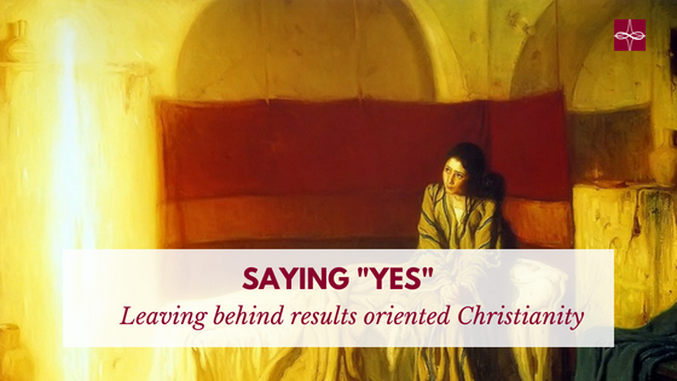





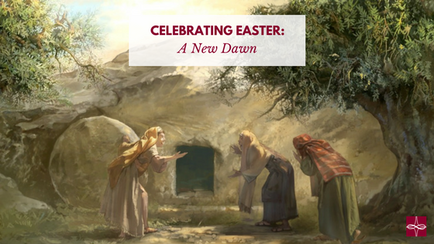



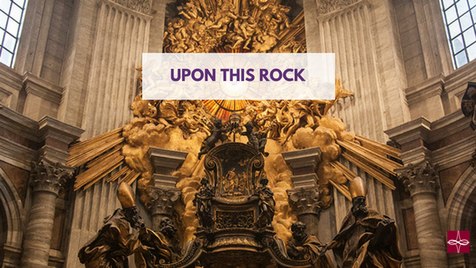



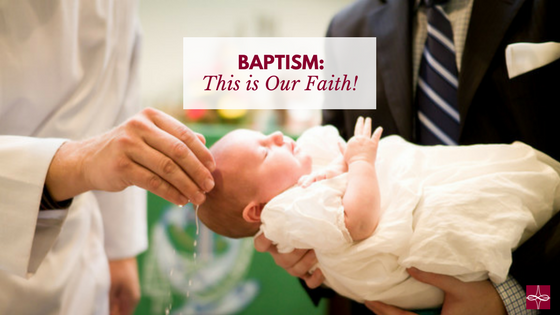



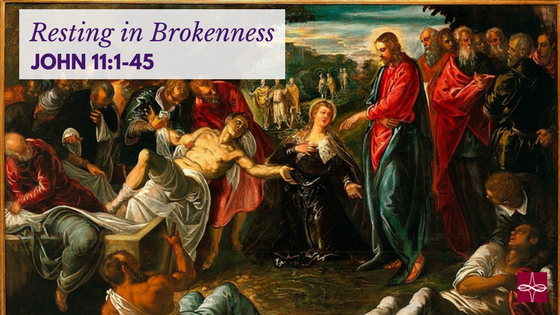




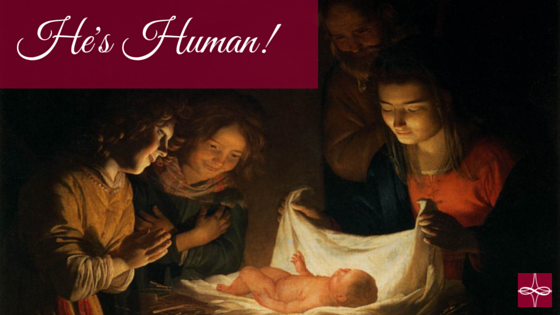




 RSS Feed
RSS Feed